
ICAS Bulletin (online ISSN 2836-3418, print ISSN 2836-340X) is published every other week throughout the year at 1919 M St NW, Suite 310, Washington, DC 20036.
The online version of ICAS Bulletin can be found at chinaus-icas.org/bulletins/.
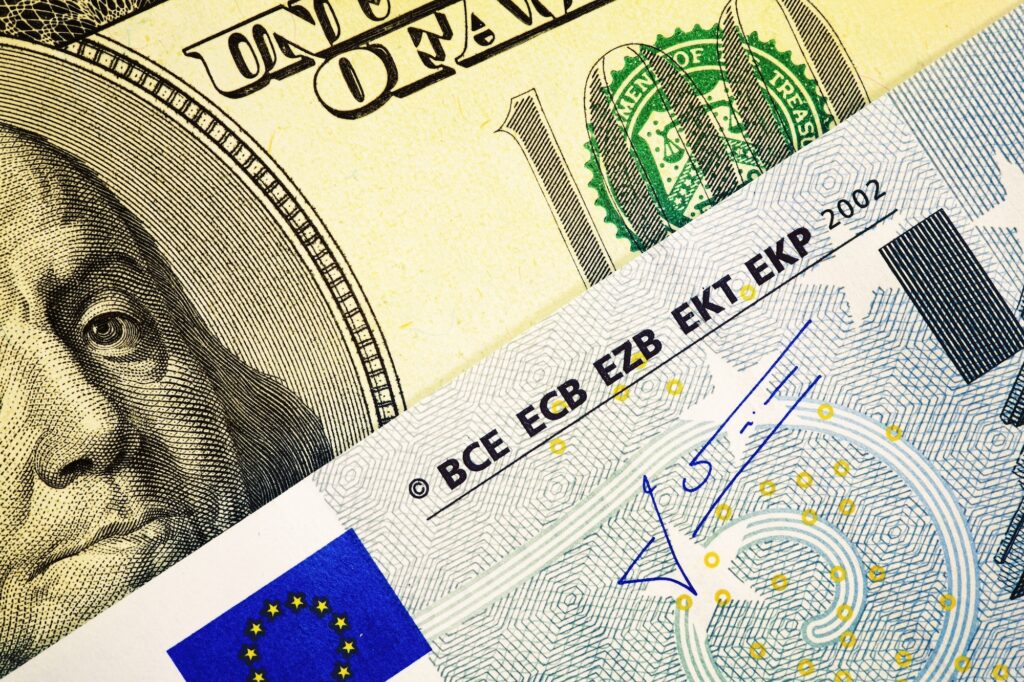
– On June 14, a senior U.S. official said Washington “expect[s] to see unprecedented unity” among the G7 partners to counter China’s unfair, non-market practices that have resulted in global spillovers of Chinese overcapacity and supply chain dependencies.
– On June 12, the European Union announced that it would impose an additional tariff of up to 38 percent on electric vehicles imported from China, shortly after President Biden announced tariff increases on Chinese electric vehicles.
– In reaction to the tariff spike, an U.S. industry group consisting of 173 trade associations asked the Biden Administration to delay the effective date of the Chinese tariffs while also requesting a public hearing and potential reconsiderations.
– Meanwhile, a different U.S. policy group led by United Steelworkers Union and other U.S. manufacturing firms called for stronger trade barriers on China in addition to the current tariff increases.
– On June 7, the chairman and founder of BYD, the largest Chinese auto company, said at an industry summit in China that foreign countries fear Chinese electric vehicles. He urged the industry to embrace more competition in its transition to green technology.
– To protect the struggling solar industry in the United States, the Biden administration revived U.S. tariffs on solar products on June 6, targeting Chinese solar panel manufacturers located in Southeast Asia.
Associated News References:
“U.S. trade groups request extension to comment on tariffs on Chinese imports,” CBT News, June 17
“G7 leaders discuss more steps to level China playing field, US official says,” Reuters, June 14
“US industry groups seek hearing, more on Biden’s China tariff hike,” Reuters, June 14
“European Union Hits E.V.s From China With Extra Tariffs Up to 38%,” The New York Times, June 12
“Europe, US Fearful of Chinese Electric Cars, Says BYD Founder,” Bloomberg, June 7
“U.S. Adds Tariffs to Shield Struggling Solar Industry,” The New York Times, June 6

– On June 18, following a serious confrontation between the Philippines and China in the South China Sea, Washington renewed a warning that it is obligated to defend the Philippines in major conflicts.
– On June 17, the United States, Canada, Japan and the Philippines conducted a two-day joint maritime military exercise in the South China Sea. The U.S. Navy stated that this cooperation aimed to uphold freedom of navigation and bolster regional stability.
– The Vice Foreign Minister of China said on June 9 that the United States’ military involvement in the South China Sea greatly disrupts regional security and fuels ongoing maritime disputes and provoking an arms race.
– On June 6, the U.S., Japanese, and South Korean coast guards conducted their first joint maritime drill in Japan’s coast to strengthen security cooperation against China’s increasing maritime assertiveness.
– Two days after Washington approved sales of F-16 jet parts to Taiwan, the Chinese Defense Ministry expressed its strong opposition to Washington’s arms sales, urging Washington to withdraw immediately.
– In an interview with TIME at the White House, President Joe Biden said that he does not rule out the possibility of deploying U.S. military force to defend Taiwan in the case of a Chinese invasion.
– Intelligence officials in the United States and allied countries released a bulletin warning that the Chinese military has been “aggressively recruiting” former Western military pilots to train its air force.
Associated News References:
“U.S. reiterates its obligation to defend the Philippines after new clash with China at sea,” NBC, June 18
“US, Canada, Japan, and Philippines conduct joint exercises in South China Sea,” Deccan Herald, June 17
“China says US provoking arms race in moves into South China Sea,” Reuters, June 9
“China strongly opposes U.S. arms sales to Taiwan, urges withdrawal,” Reuters, June 7
“Japan, US, South Korean coast guards hold 1st joint drill off Japan’s coast as China concerns rise,” ABC, June 6
“Read the Full Transcript of President Joe Biden’s Interview With TIME,” Time, June 5
“Allies Warn Former Fighter Pilots Not to Train Chinese Military Members,” The New York Times, June 5
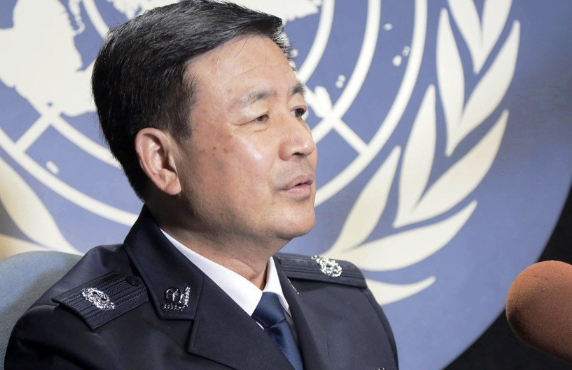
– On June 12, Deputy Secretary of State Kurt Campbell said that Washington believes that Beijing is determined to stabilize its bilateral relations as its priority shifts to its economy.
– Four American teachers from Cornell College were stabbed and wounded in Jilin, China on June 10. The Chinese Foreign Ministry claimed that this was an isolated incident and would not affect the people-to-people exchange between the U.S. and China that President Xi Jinping has been encouraging.
– On June 6, the Chinese Minister for Public Security met with the U.S. Homeland Security Secretary via a video call. They agreed to maintain communication and hoped to deepen cooperation on law enforcement and counter-narcotics efforts.
– In his letter reply to the president of Kean University in New Jersey, President Xi Jinping called for increases in educational exchanges between universities in the United States and China to strengthen bilateral ties and cultivate “young ambassadors.”
– In response to NASA’s congratulatory message to the success of the Chang’e 6’s mission to the moon, the Chinese Foreign Ministry stated that China remains open to space cooperation with other countries, including the U.S., but that the U.S. would have to remove existing obstacles.
Associated News References:
“Senior US diplomat believes China determined to stabilize relations,” Reuters, June 12
“US lawmakers seek China patent data amid science pact talks,” Reuters, June 12
“China Says Stabbing of Four Teachers Won’t Derail US Ties,” Bloomberg, June 10
“China police chief, US homeland security head discuss law enforcement cooperation,” Reuters, June 6
“China says open to space cooperation with US but ‘hurdles’ remain,” Reuters, June 6
“Xi Calls for More University Exchanges With US to Boost Ties,” Bloomberg, June 6
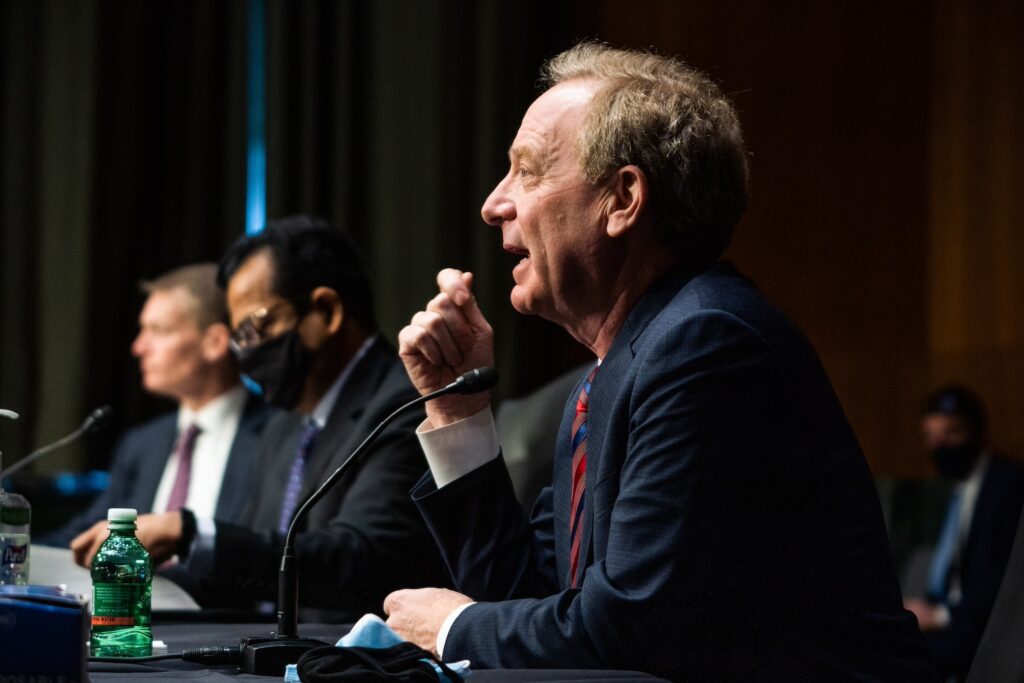
– House representatives heavily criticized Microsoft President Brad Smith in a congressional hearing on June 13 for Microsoft’s inability to protect federal systems from Chinese hackers and questioned its increasing investments in Chinese research initiatives.
– Awaiting the renewal of the U.S.-China Science Technology Agreement on bilateral scientific cooperation, Republican lawmakers have raised concerns over U.S. intellectual property and national security, specifically asking whether U.S. funds have resulted in Chinese patents.
– On June 11, the U.S. Department of Homeland Security imposed import bans on three Chinese companies allegedly linked to forced labor programs in Xinjiang.
– On June 10, the chair of the Senate Finance Committee said that the Committee will expand its investigations into BMW for the company’s alleged use of car parts from a banned Chinese supplier.
– A group of Republican lawmakers have urged for import bans on two Chinese battery companies CATL and Gotion High Tech under allegations of using forced labor in their supply chain.
– After Bloomberg reported previously undisclosed funding from Huawei to the Optica Foundation for cutting-edge research in U.S. universities, the Optica Foundation announced that it will no longer accept any money from Huawei and will return previously received donations.
Associated News References:
“US lawmakers grill Microsoft president over China ties, hacks,” Reuters, June 13
“US lawmakers seek China patent data amid science pact talks,” Reuters, June 12
“U.S. Bans Imports From 3 Chinese Companies Over Ties to Forced Labor,” The New York Times, June 11
“US Senate panel expands probe into BMW use of parts from banned Chinese supplier,” Reuters, June 10
“Chinese Battery Suppliers Tied to Ford, VW Should Be Banned, GOP Lawmakers Say,” The Wall Street Journal, June 6
“Optica Cuts Ties With Huawei After Secret Funding Exposed,” Bloomberg, June 6

– On June 18, the EU Commissioner for Competition stated that though the EU can “never outspend China or the U.S.,” it can find novel ways to strategically compete and contend with the two countries.
– In response to his upcoming visit to Beijing and increasing Chinese investments in Peru, Peru’s Prime Minister Gustavo Adrianzén said that, rather than prompting U.S. resentment, this is ”an invitation for Western capital to arrive.
– On June 11, the U.S. envoy to Budapest heavily criticized the Hungarian government for its close economic and political ties with China, explicitly denouncing its acceptance of Chinese investments and growing security cooperation with Beijing.
– In response to Washington’s recent restrictions on semiconductor exports to the Middle East to prevent Chinese acquisition, the UAE minister for artificial intelligence said that Washington’s concern is justified.
– On June 7, U.S. Secretary of Commerce Gina Raimondo said that Washington’s presence in the Indo-Pacific region is not about stopping countries from trading with China, but is rather about “the United States showing up in the region.”
Associated News References:
“EU to challenge U.S. and China strategically on trade, competition chief says,” CNBC, June 18
“Peru PM says boost in China’s investments will not prompt US ‘resentment’,“ Reuters, June 17
“US envoy warns Hungary that close ties with China ‘come with strings attached’,” Reuters, June 11
“UAE Minister Says US Concerns Over Chip Supplies to China Valid,” Bloomberg, June 11
“U.S. economic engagement in Indo-Pacific ‘isn’t about China,’ Commerce Secretary Raimondo says,” CNBC, June 7
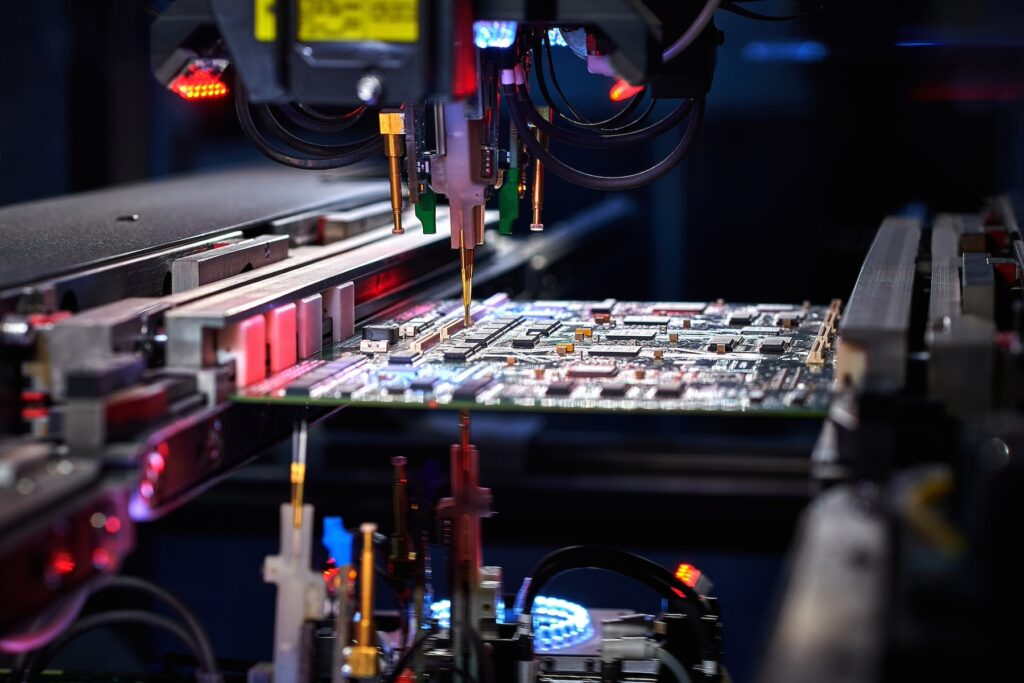
“As China’s Pressure on Taiwan Rises, Departing U.S. Envoy Urges Steady Hand,” The New York Times, June 17
“US as many as 15 years behind China on nuclear power, report says,” Reuters, June 17
“Xi Jinping claimed US wants China to attack Taiwan,”, Financial Times, June 15
“Chinese automakers overtake U.S. rivals in sales for the first time, report shows,” CNBC, June 14
“Pentagon ran secret anti-vax campaign to undermine China during pandemic,” Reuters, June 14
“US expands Russia sanctions, targets chips sent via China,” Reuters, June 13
“US Senator Calls on UK to Vet Shein’s Labour Practices Ahead of IPO,” Chaileedo, June 13
“Yellen: US growth needs public, private investments, China subsidies excessive,” Reuters, June 13
“US’s China Export Limits Hurt Both Nations, China Advisor Says,” Bloomberg, June 12
“China Scoops Up American Soy After Brazil’s Surprise Tax Change,” Bloomberg, June 11
“US Weighs More Limits on China’s Access to Chips Needed for AI,” Bloomberg, June 11
“Some US lawmakers call for more scrutiny of news app NewsBreak over Chinese origins” Reuters, June 8
“US tech sector pressures Chinese venture capital to divest,” Financial Times, June 7
“China’s Alibaba is courting European and U.S. small businesses as it goes global,” CNBC, June 6
“No-tariff shipments popular with Shein, Temu hit US customs speedbump,” Reuters, June 6
“Russia, China wrangle with US over UN resolution on Gaza ceasefire plan,” Reuters, June 6
“Trump suggests tariffs against nations including China over illegal immigration,” Reuters, June 6
“US proposes to boost internet security, citing Chinese carrier action,” Reuters, June 6
U.S.-China and Trade Frictions: How Much Worse Will It Get?
June 13, 2024
Virtual (Zoom)
On June 13, 2024,ICAS hosted a virtual public event to discuss the aggravated trade tensions that have once again risen to the fore in the U.S.-China relations. The event featured two panelists: Dr. Mary Lovely, Anthony M. Solomon Senior Fellow at the Peterson Institute for International Economics (PIIE) and Dr. Tu Xinquan, Professor and Dean at the University of International Business and Economics’ China Institute for WTO Studies. The panelists were introduced by Dr. Hong Nong, Executive Director of ICAS, and moderated by Mr. Sourabh Gupta, Head of ICAS’ Trade n’ Technology (TnT) Program.
The panelists touched on the many drivers and concerns that have coalesced and led to the trade frictions between the United States and China, as well as the many parallels between the U.S.’ earlier altercation with Japan from the 1970s to the early-1990s. Besides, as noted by both panelists, given the size and persistence of China’s footprint in the trade policy arena, any U.S. approach or vision of a reformed trading order must necessarily include China. There is no other way around this necessity. The essence of the dilemma for both parties, going forward, is to accept that deviation from WTO rules is going to willy-nilly happen, that both sides should exercise a degree of pragmatism when dealing with the other, and that they should preferably frame the terms of their competition on fair and healthy lines.
Chinese Scholars Discuss Taiwan and Cross-Strait Relations with ICAS Scholars
June 6, 2024
On Thursday, June 6, 2024, two expert scholars from China visited ICAS and had a discussion with ICAS researchers on current events on U.S.-China relations, especially as they relate to Taiwan.
Both Dr. Xin Qiang (Professor and Deputy Director, Center for American Studies, Fudan University) and Dr. Ji Ye (Professor of Law and Deputy Dean, Graduate Institute for Taiwan Studies, Xiamen University), specializes in cross-strait relations and U.S.-China relations.
White House’s Headless Trade Policy Will Induce Congress-Hooked Protectionism
By Amanda Jin
June 18, 2024
When the Biden administration first announced its Trade Policy Agenda in 2021, trade was supposedly an “essential component” of their flagship Build Back Better agenda to revitalize the American industrial and innovation base. More than three years later, the administration’s trade policy has created dissatisfaction at home—including within President Biden’s own party, limited progress in its global agenda and has led to no movement in its bilateral engagements. With de-facto discontinuation of trade negotiations in the Asia-Pacific and a transatlantic trade and tech partnership that may not survive after November, the administration cannot seem to present any durable trade deliverable—in action or in negotiation—that helps ensure market access or eliminate trade barriers for U.S. exports, i.e. “leveling the playing field” and “build up strength at home” for American workers.
U.S. and China should have a open-minded AI discussion, not a security-focused one
By Ao Guo
June 14, 2024
The recent U.S.-China AI dialogue in Geneva in early May 2024 illustrates the difficulty of constructing an AI governance structure. In short, the United States wants to ensure an AI governance system that is “secure, safe, trustworthy” while China expects it to adhere to the principle of “AI for good” and to expand the United Nations’ role in global AI governance. These differing priorities suggest a struggling scenario where global AI governance involving cooperation between the two major powers is, for the most part, insurmountable.
Therefore, to facilitate this critical bilateral cooperation on global AI governance, the two countries should put more effort into facilitating AI’s role in providing public goods for developing countries, which grants the two countries the opportunity to have “candid and constructive” AI governance-related conversations.
On Thursday, June 6, 2024, Senior Fellow Sourabh Gupta was interviewed by Sputnik International on the results of the Indian parliamentary elections.
On Wednesday, June 5, 2024, Senior Fellow Sourabh was interviewed by CGTN on the results of the Indian general election.
On Wednesday, June 5, 2024, non-resident Fellow Denis Simon was quoted by Nature on China’s ambitions and developments within its science and technology ecosystem.
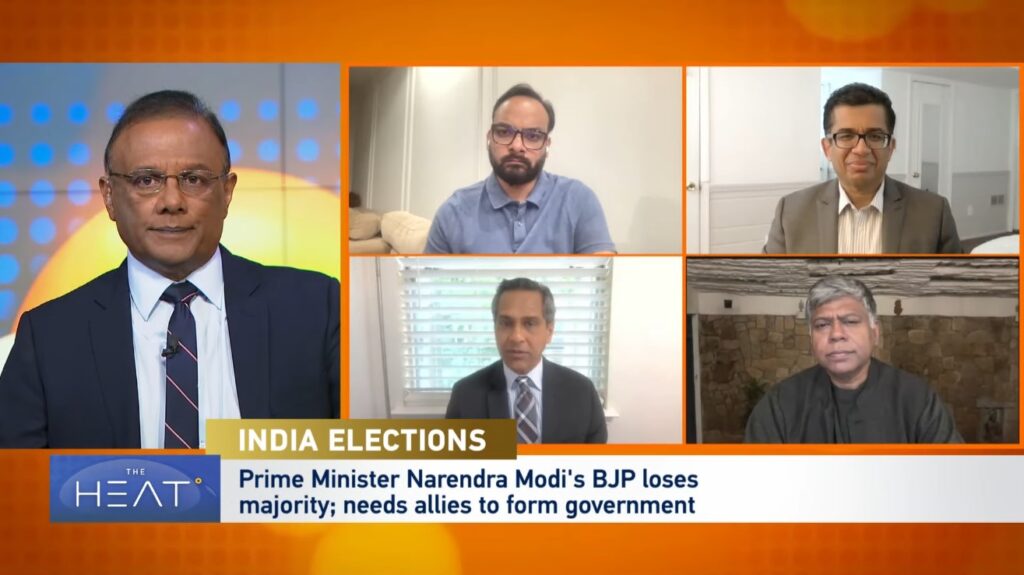

The Institute for China-America Studies is an independent nonprofit, nonpartisan research organization dedicated to strengthening the understanding of U.S.-China relations through expert analysis and practical policy solutions.
1919 M St. NW Suite 310,
Washington, DC 20036
icas@chinaus-icas.org
(202) 968-0595
© 2025 INSTITUTE FOR CHINA-AMERICA STUDIES. ALL RIGHTS RESERVED.